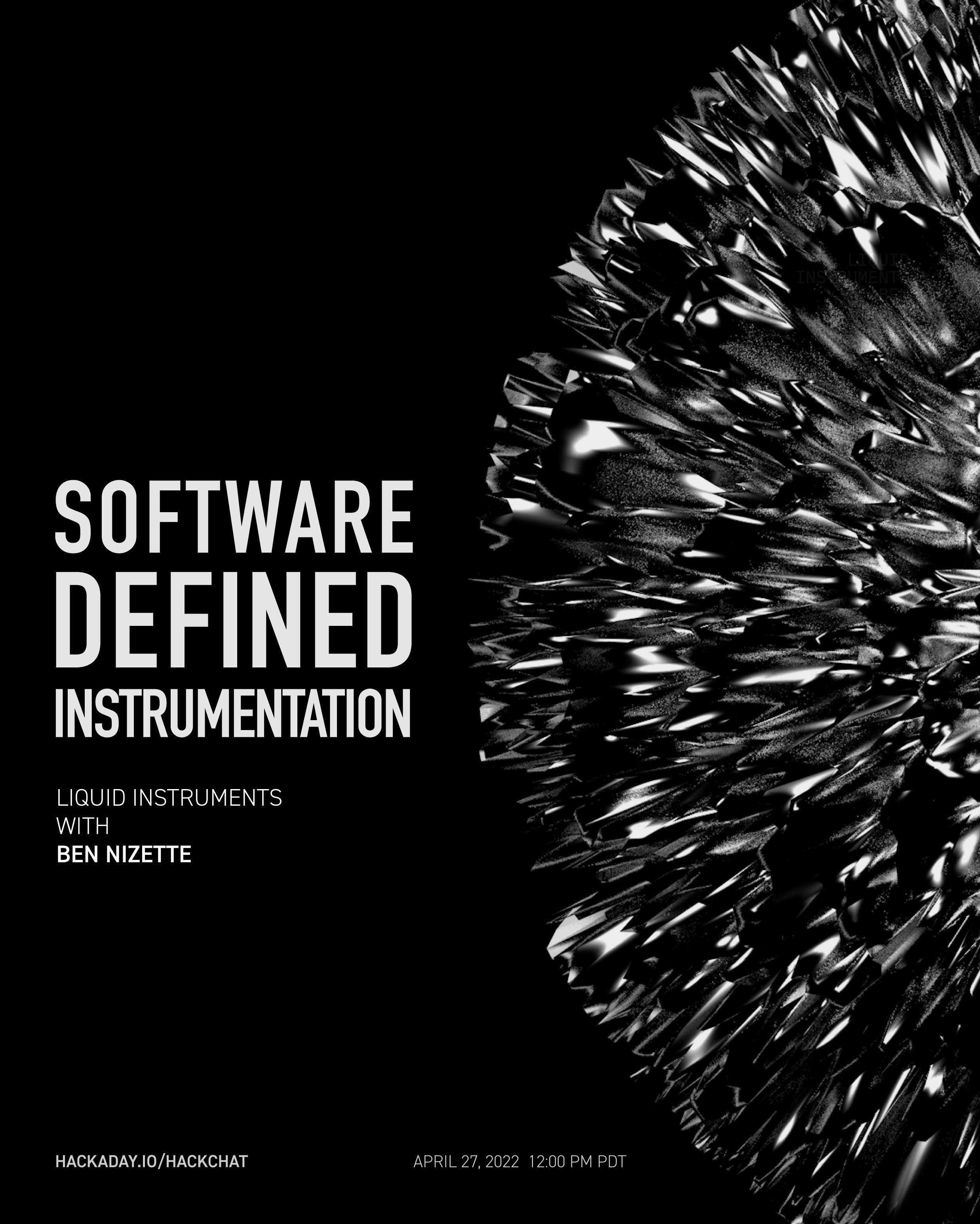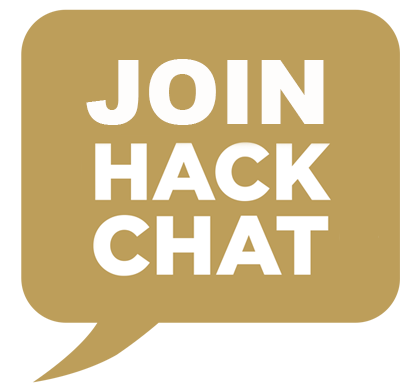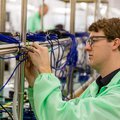Ben Nizette will host the Hack Chat on Wednesday, April 27 at noon Pacific.
Time zones got you down? Try our handy time zone converter.
Imagine, if you will, the perfect electronics lab. Exactly how it looks in your mind will depend a lot upon personal preferences and brand loyalty, but chances are good it'll be stocked to the gills with at least one every conceivable type of high-precision, laboratory-grade instrument you can think of. It'll have oscilloscopes with ridiculously high bandwidths, multimeters with digits galore, logic analyzers, waveform generators, programmable power supplies, spectrum analyzers -- pretty much anything and everything that can make chasing down problems and developing new circuits easier.
Alas, the dream of a lab like this crashes hard into realities like being able to afford so many instruments and actually finding a place to put them all. And so while we may covet the wall of instruments that people like Marco Reps or Kerry Wong enjoy, most of us settle for a small but targeted suite of instruments, tailored to our particular needs and budgets.
It doesn't necessarily need to be that way, though, and with software-defined instrumentation, you can pack a lab full of virtual instruments into a single small box. Software-defined instrumentation has the potential to make an engineering lab portable enough for field-service teams, flexible enough for tactical engineering projects, and affordable for students and hobbyists alike.
Ben Nizette is Product Manager at Liquid Instruments, the leader in precision software-defined instrumentation. He's the engineer behind Moku:Go, the company's first consumer product, which squeezes eleven instruments into one slim, easily transported, affordable package. He's been in the thick of software-defined instrumentation, and he'll drop by the Hack Chat to talk about the pros and cons of the virtual engineering lab, what it means for engineering education, and how we as hobbyists can put it to work on our benches.








